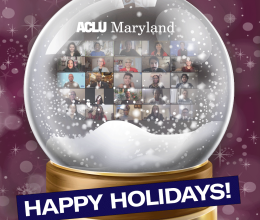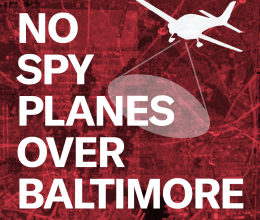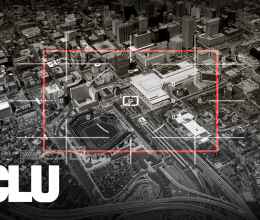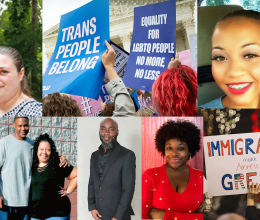
FOR IMMEDIATE RELEASE
November 1, 2013
CONTACT:
Brittany Oliver, ACLU-MD, 410/889-8550, ext. 171
Joe Surkiewicz, HPRP, 410/685-6589, ext. 12
BALTIMORE - A bill to further restrict panhandling in downtown Baltimore is both unconstitutional and a violation of a consent decree in previous litigation concerning the treatment of homeless people, according to the American Civil Liberties Union of Maryland and the Homeless Persons Representation Project.
In a letter to the President and members of the City Council, the nonprofit law firms warn that provisions such as a prohibition on soliciting donations in commercial districts would violate the First Amendment and that courts have repeatedly ruled that the First Amendment protects such solicitations.
The letter notes that the City's Law Department and the advocacy groups agree on the applicable legal rules, though disagree on what those rules mean with respect to the specific proposals in the bill.
The groups take issue with the Law Department's contention that the prohibition on soliciting outside of businesses can be sustained as a public safety measure, noting that persons do not typically enter or exit business with cash or credit cards in hand, and that there are no studies showing that people are more vulnerable to crime when entering or exiting a business, as opposed to anywhere else in the City.
The groups point out that the City Law Department correctly concluded earlier this year that a proposal by the Downtown Partnership to prohibit soliciting persons seated in outdoor dining areas was unconstitutional, noting that a recent federal appellate court recently struck down an identical proposal.
The letter also notes that in a 1994 settlement of lawsuit filed by the ACLU challenging the harassment of homeless people under the City's solicitation laws, the City agreed that "panhandling" was speech protected by the First Amendment, and agreed to refrain from asking persons soliciting assistance to move along unless they were violating some other valid ordinance.
"As long as asking for money is speech protected by the First Amendment, and even the City agrees that it is, the First Amendment prohibits laws like this that seek to have homeless and destitute people live by one set of rules governing their speech, while more favored speakers live under another," said David Rocah, Senior Staff Attorney at the ACLU of Maryland.
"Panhandling is simply a sign of the tremendous poverty in our city," said Antonia Fasanelli, Executive Director of the Homeless Persons Representation Project. "As we have seen over the decades, anti-panhandling laws don't accomplish the goal of ending homelessness and reducing poverty, and may actually make it worse," Fasanelli continued.
"Laws like this only create further barriers to employment by creating criminal records that further marginalize people with very little," she said. "We see this bill as counter-productive and an ill-conceived policy that has been proven ineffective."
The groups' letter can be viewed here
# # #







